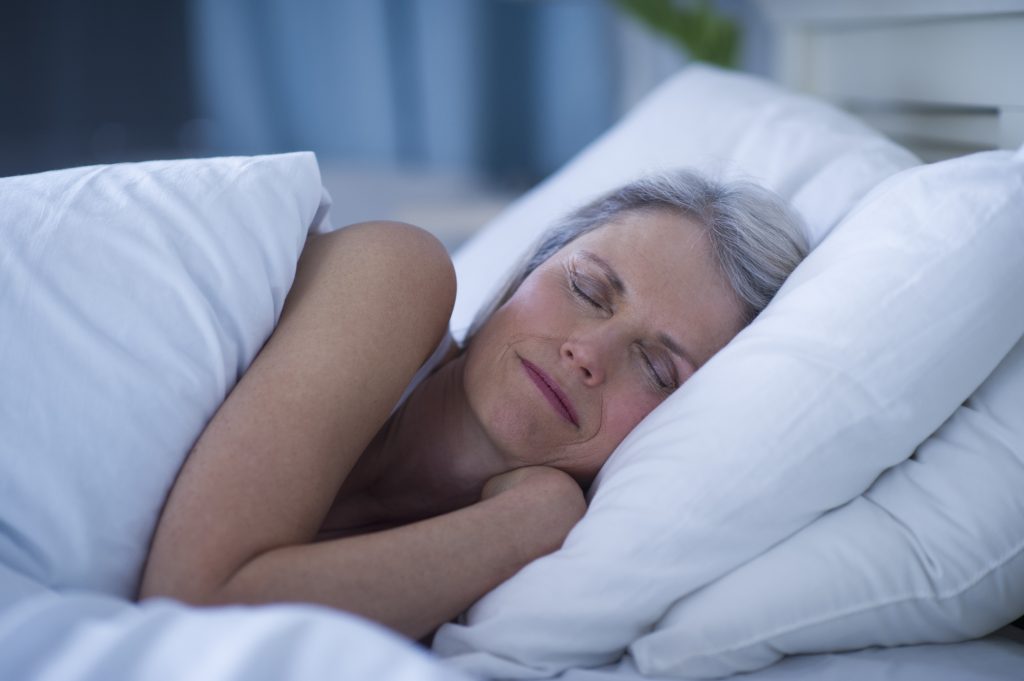
Sleep Tips
Good sleep not only makes life more enjoyable, it is necessary for continued health as we age. During sleeping hours, the human body strengthens bones and rebuilds muscle as well as tissues on the cellular level. This is especially important for seniors who may more easily become injured or fall ill. Getting quality sleep may prove more challenging if said elderly suffer from aches and pains or one of many sleep disorders. Here are a few tips that will make bedtime safer and more effective for seniors.
- Set Bedroom Up to Accommodate Senior Needs
Over time, a person may need to make certain adjustments to the bedroom for safety purposes. For example, having stable support bars next to the bed might make it easier for getting in and out of the bed. Bed rails can lessen the chance of falling out of bed as well. For those who have trouble walking independently, it may be important to strategically place heavy furniture so it can be used for stabilization when walking to the restroom in the middle of the night.
- Choose the Right Bed for Senior Use
Aging and the lifestyle that follows can lead to poor circulation and mobility problems for seniors. These concerns and others typical in the aging population can be addressed by choosing the right bed. Hospital beds and adjustable beds both offer multiple advantages over traditional bases. First, they both generally provide adjustable positioning which is associated with improved circulation. The ability to move the head of the bed up and forward can also make moving in and out of bed much easier. Many people who use these types of sleep arrangements also find relief for back pain and symptoms from sleep disorders.
- Provide Easy-to-Access Lighting
Clap on-clap off lighting systems can be very useful for the elderly. Utilize this type of lighting to prevent stumbling in the dark toward a lamp which may result in unnecessary falls. You may also use nightlights or place a touch lamp on the bedside table. Today’s technology has led to many simple lighting options that can help. For example, you could pick a bed with built-in lighting or opt for voice activated lights.
- Follow a Consistent Sleep Schedule
The quantity of sleep that is needed by each senior may vary. However, all seniors benefit from maintaining a consistent sleep schedule. Going to bed and waking at the same time daily helps to keep circadian rhythm on track. This is an internal pacing that works with other regular body functions for optimal health. There are several ways to ensure you get to sleep near the same time each night. A couple include limiting television before bed and limiting meals close to bedtime.
- Make Dietary Adjustments for Better Sleep
The right foods may help seniors sleep better. Potassium rich foods, like bananas, can have a calming effect on the nervous system. Additionally, this beneficial fruit contains tryptophan. This is an amino acid that is known for its ability to improve sleep and promote relaxation. Tart cherries are another great afternoon snack that could boost sleep quality. They help regulate the sleep-wake cycle by supplying the body with melatonin.
- Move More During the Day
Seniors who stay as active as possible throughout the day tend to sleep better at night. Though aging and ailments might make this difficult. If you don’t get around as well as you used to, try doing what you can when you can. Smaller increments of daytime activity can add up! Constant inactivity can lead to insomnia which is one of the most common sleep issues faced by the elderly.
Getting good sleep is often related to health and happiness. Overlooking the changing sleep and bedroom needs of seniors can have consequences for both of these aspects. It’s easy to adapt to the new needs by making just a few simple changes. Be sure to re-evaluate often to stay on top of the current needs of our aging loved ones.
“Bedroom & Sleep Tips for Seniors” written by Jesse Crow, Owner of Rest Right Mattress
